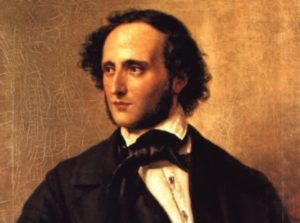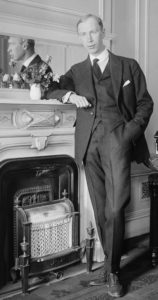
Felix Mendelssohn
© assets.classicfm.com
The statement in the title of this article was made by Felix Mendelssohn.
In his short life of just 38 years, Mendelssohn left his mark on the art world with compositions that are still highly popular today. His music was progressive and new; it all still sounds fresh today. Not one of his pieces is dull, derivative or characterless. His music, I’m sure, will still be popular in another two hundred years.
I ask myself why is his music so good? My answer is because he lived in art. He submerged himself in his art. I also ask myself why are there so few composers today that do not create music that is as interesting and as good as the music of Mendelssohn? My answer is composers, like me, we are too busy with life. I also guess we are busy not dying at the age of just 38 and keeping ourselves alive.
This raises the question; do we have to die for our art?
It is not clear what killed Mendelssohn; it is assumed it was a stroke. Those of us who are at risk of a stroke are people who have high blood pressure, high cholesterol, don’t exercise much, have diabetes, and those of us who smoke. It is said that Mendelssohn did not smoke, but as a composer, he probably didn’t get enough exercise or time to relax and chill out. These things may have been the cause of his stroke if he had one that is.
Would I gladly die for the sake of my art? Yes, I would. Something that I have always known is, the hardest thing in this world is to make a difference. Mendelssohn’s music has made a difference to my life, and to millions of others over the past two centuries and probably the following centuries as well. That difference is, his music has helped to make my life worth living. Along with many other composers and their music, music makes life worth living.
The other composer who has made the most difference to me is Sergei Prokofiev. There’s something in his music that moves me. I can pick his music out even when I have never heard that piece before. Prokofiev lived to be 61. That’s not a long life in today’s terms, but back in 1953 when he died, it was just under the average age.
He lived his whole life for his art. Beginning composing when he was five and still making music right up until he died; he never stopped composing throughout his life.

Sergei Prokofiev
© Wikipedia commons
Lieutenant Kije Suite, Op. 60
The piece of his that moves me the most is his highly colourful Lieutenant Kijé Suite. From the beginning of that lonely solo trumpet sound announcing the Birth of Kijé to the amazingly sad Romance of Kijé, to the procession of the Kijé Wedding, then to the famous Troika ride with customary Christmas Bells, and finally, to the immensely sad Burial of Kijé and that lonely sound of the solo trumpet returning. And then, his whole life gets relived through the music again.
There are many other pieces by Prokofiev that affect the soul and the mind. His Alexander Nevsky Cantata from Sergei Eisenstein’s movie of the same name has some of the loudest and most profoundly disturbing, dynamic and uproarious music ever created. You can watch the whole film here, but that’s not the best version of his music.
The St Petersburg Philharmonic Orchestra and the Choir of the National Academy of Santa Cecilia have one of the better versions of Alexander Nevsky ever recorded. In it, you can also hear echoes of his Lieutenant Kijé Suite. This is spine-tingling stuff, turn it up loud.
However, to me, Prokofiev put everything he felt about life, love and death into his Lieutenant Kijé Suite. All his artistic passion went into making this piece as memorable and moving as possible. More than anything else on this earth, Prokofiev’s Lieutenant Kijé Suite shows me that art and life are not two separate things, as Mendelssohn said.



